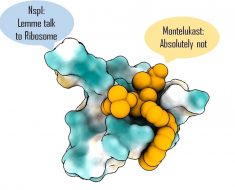Low-carb keto diets raise the risk of heart rhythm disorders, study finds
- The study is being presented at the American College of Cardiology’s annual conference next week
- It is the first ever to look at how low-carb diets affect the heart, assessing 13,000 dieters
- The keto diet is favored by celebrities including the Kardashians and Gwyneth Paltrow
- But researchers found cutting out grains and starchy veg sends the heartbeat off-kilter
8
View
comments
Trendy low-carb diets popular with celebrities raise the risk of a developing an irregular heartbeat linked to strokes, warns a new study.
The low-carb – or ‘keto’ – diet trend is all the rage, with devotees including Kim Kardashian and Gwyneth Paltrow.
But new research suggests that cutting back on carbohydrates can spell trouble for your heart.
The findings show people getting a low proportion of their daily calories from carbs such as grains, fruits and starchy vegetables are ‘significantly more likely’ to develop an irregular heartbeat, also known as atrial fibrillation.


Following the keto diet forces the body into a metabolic state, known as ketosis, which starves the body of carbohydrates but not calories
WHAT IS THE KETO DIET?
The Ketogenic diet defines a low-carb, high-fat way of eating.
Following this eating plan forces the body into a metabolic state, known as ketosis, which starves the body of carbohydrates but not calories.
Carbs are shunned in the keto diet as they cause the body to produce glucose, which is used as energy over fat.
Keto diets therefore lead to weight loss as they make the body burn fat as its primary energy source.
On the diet, followers can eat:
- Meat
- Leafy greens and most vegetables
- Full-fat dairy
- Nuts and seeds
- Avocadoes and berries
- Fats, such as coconut oil
People cannot eat:
- Grains, including rice and wheat
- Sugar, like honey and maple syrup
- Most fruit
- White or sweet potatoes
The study analyzed the health records of more than 13,000 people spanning more than two decades.
It is the first and largest to assess the relationship between carbohydrate intake and atrial fibrillation, the most common heart rhythm disorder.
The heart of people with the problem doesn’t always beat or keep pace the way it should, which can lead to palpitations, dizziness and fatigue.
People with atrial fibrillation are five times more likely to have a stroke than people without the condition. It can also lead to heart failure.
Restricting carbs has become a popular weight loss method in recent years.
While there are many different low-carb diets including the ketogenic, paleo and Atkins diets, most emphasize proteins while limiting intake of sugars, grains, legumes, fruits and starchy vegetables.
Study lead author Dr Xiaodong Zhuang, a cardiologist based at Sun Yat-Sen University in China, said: ‘The long-term effect of carbohydrate restriction is still controversial, especially with regard to its influence on cardiovascular disease,.
‘Considering the potential influence on arrhythmia, our study suggests this popular weight control method should be recommended cautiously.’
The findings complement previous studies, several of which have associated both low-carb and high-carb diets with an increased risk of death.
However, while previous studies suggested the nature of the non-carb component of the diet influenced the overall pattern observed, the new study did not.
-
 Trendy low-carb diets are fuelling a rise in bloating,…
Trendy low-carb diets are fuelling a rise in bloating,…  From Kim Kardashian’s meal replacement shakes to JLo’s no…
From Kim Kardashian’s meal replacement shakes to JLo’s no…
Share this article
Dr Zhuang said: ‘Low carbohydrate diets were associated with increased risk of incident atrial fibrillation regardless of the type of protein or fat used to replace the carbohydrate.’
Of the nearly 14,000 people who did not have atrial fibrillation when they enrolled in the study, researchers identified nearly 1,900 who were subsequently diagnosed with it during an average of 22 years of follow-up.
Study participants were asked to report their daily intake of 66 different food items in a questionnaire.




Gwyneth Paltrow and Kim Kardashian support the keto diet, driving scores of people to try it
The researchers used the information along with the Harvard Nutrient Database to estimate each participant’s daily carb intake and the proportion of daily calories that came from carbohydrates.
On average, carbs comprised about half of the calories eaten. The Dietary Guidelines for Americans recommend that carbs make up 45 to 65 percent of total daily calorie intake.
Researchers then divided the participants into three groups representing low, moderate and high carb intake, reflecting diets in which carbohydrates comprised less than 44.8 percent of daily calories, 44.8 to 52.4 percent of calories, and more than 52.4 percent of calories, respectively.
Participants reporting low carb intake were the most likely to develop atrial fibrillation. They were 18 percent more likely to develop the disorder than those with moderate carb intake and 16 per cent more likely than those with high carb intake.
Dr Zhuang said there are several potential explanations why restricting carbs might lead to an irregular heartbeat.
One is that people eating a low-carb diet tend to eat fewer vegetables, fruit and grains – foods that are known to reduce inflammation.
Without those foods people may experience more inflammation, which has been linked with atrial fibrillation.
Another possible explanation is that eating more protein and fat in place of carb-rich foods may lead to oxidative stress, which has also been associated with atrial fibrillation.
Dr Zhuang said the effect could also be related to an increased risk of other forms of heart disease.
He is due to present the findings at the American College of Cardiology’s annual Scientific Session in New Orleans later this month.
Source: Read Full Article





